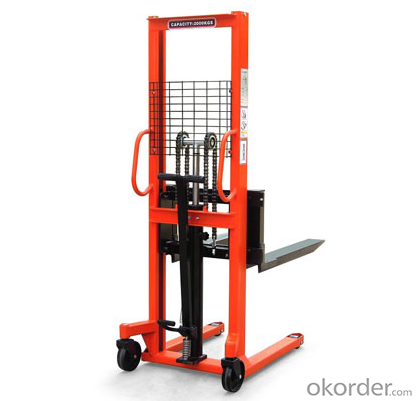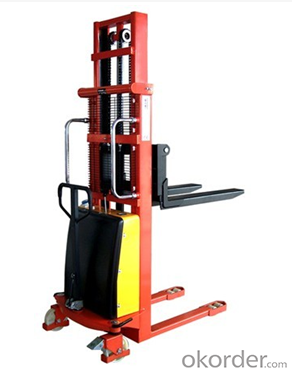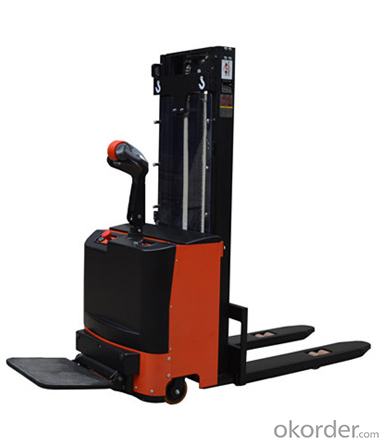Loading Port:Shanghai
Payment Terms:TT OR LC
Min Order Qty:1 unit
Supply Capability:1 unit/month
Hand stacker model SFH2016E lifting goods by hydraulic, is a light material handling equipment.
Compact structure,good looking,high performance,flexible and safe.
Ideal for loading,stacking and transporting goods at warehouse,supermarket,harbor,station and factory.
Work easily and efficiently.
| Model | unit | SFH2016E | |
| Rated capacity Q | kg | 2000 | |
| Fork lowered height H1 | mm | 90 | |
| Max lifting heightH2 | mm | 1600 | |
| Fork length L1 | mm | 900 | |
| Fork load center distance L2 | mm | 400 | |
| Fork max outer width W1 | mm | 710 | |
| Max lifting speed | mm/times | 14 | |
| Falling speed | manual control | ||
| Overall dismension | Length L | mm | 1412 |
| Width W | mm | 764 | |
| Height H | mm | 2023 | |
| Wheel | Front wheel D1 | mm | 80 |
| Rear wheel D2 | mm | 180 | |
| Min ground clearance | mm | 23 | |
| Min turning radius R | mm | 1290 | |
| N.W | kg | 180 | |
Remarks:
1、when the vehicle is in the state of no load or light loaded(less than 150kg),goods can be lifted by foot lever.
2、We have the right to modify the product and improve the technology at any moment without any notice.



Gold dredges in Alaska had a stacker that was a fixed part of the dredge. It carried over-size material to thetailings pile.
Stackers are nominally rated for capacity in tonnes per hour (tph). They normally travel on a rail between stockpiles in the stockyard. A stacker can usually move in at least two directions: horizontally along the rail and vertically by luffing (raising and lowering) its boom. Luffing of the boom minimises dust by reducing the distance that material such as coal needs to fall to the top of the stockpile. The boom is luffed upwards as the height of the stockpile increases. Some stackers can rotate the boom. This allows a single stacker to form two stockpiles, one on either side of the conveyor.
Stackers are used to stack in different patterns, such as cone stacking and chevron stacking. Stacking in a single cone tends to cause size segregation, with coarser material moving out towards the base. In raw cone ply stacking, additional cones are added next to the first cone. In chevron stacking, the stacker travels along the length of the stockpile adding layer upon layer of material.